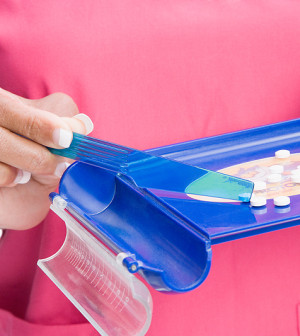Don't Miss
- Could Your Grocery Store Meat Be Causing Recurring UTIs?
- Are You Making This Expensive Thermostat Error This Winter?
- Recognizing the Signs of Hypothyroidism
- 10 Strategies to Overcome Insomnia
- Could Artificial Sweeteners Be Aging the Brain Faster?
- Techniques for Soothing Your Nervous System
- Does the Water in Your House Smell Funny? Here’s Why
- Can a Daily Dose of Apple Cider Vinegar Actually Aid Weight Loss?
- 6 Health Beverages That Can Actually Spike Your Blood Sugar
- Treatment Options for Social Anxiety Disorder
Health Tip: Lower Your Risk of Drug Interactions
By LadyLively on April 11, 2016

Taking drugs that negatively interact with each other can have dangerous consequences. But there are things you can do to lower your risk.
The U.S. Food and Drug Administration offers this advice:
- Always take medications exactly the way your doctor prescribed them.
- Make a list of all of your medications and keep it with you to share with your doctor. Include the dosage for each and when you take each medication.
- Learn how medications may interact with each other and with the foods you eat. Grapefruit juice, for example, is known to interact with many drugs.
- Go through all of your medications with your doctor to detect any potential problems or interactions.
Source: HealthDay
Copyright © 2026 HealthDay. All rights reserved.










